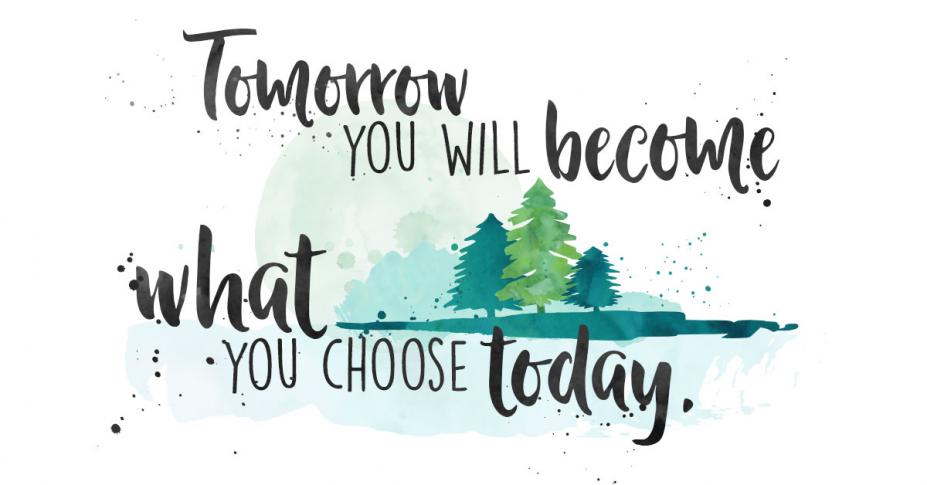"Choice: Reaction or Response"
from Getting the Best from Yourself and Others
by Julie Davis-Colan and Lee J. Colan
The power of choice is one of the greatest gifts we are given. Although we make many choices every hour of the day, we rarely make neutral choices. Each choice has a positive or negative consequence for us at some level.
Our attitude toward life is the most important choice we make! Let's look at why such a simple choice—embracing a positive or negative attitude—is more challenging than it appears for many people.
Just think of the last time you were in deep thought about your plans for the evening while driving home from work. As you pull into your driveway you wonder to yourself, "How did I get home?" The car seemed to practically drive itself. Driving is a relatively complex task, requiring many choices along the way—turn right, turn left, slow down, stop, change lanes. Still, driving home can be successfully performed almost subconsciously. So, consider the multitude of much smaller choices we make each day that we don't really think about: waking up, brushing our teeth, saying "good morning" to a colleague, eating our lunch, performing a repetitive job duty, and so on. Subconscious actions are useful most of the time, but we must also consciously choose our attitude to control our results. Our ability to choose is a gift, but it is also a huge responsibility. No matter what today's "it's not my fault" culture encourages, we are all ultimately responsible for our own choices. In fact, we like to write the word responsibility as response–ability. As humans, we have the unique ability to respond.
Here's a scenario repeated daily. Family dinners are important at the Smith house. Jim and Jane Smith and their two children (John, age three, and Janie, age four) just sat down at the table. Before the first bite of dinner is enjoyed, John spills his milk and it goes everywhere.
A reaction to this event: "Not again, John! Every time we eat, this happens. Think, son, think! Do you want to eat in your room from now on?" A response to this event: "Uh-oh, John. Let's get a sponge and clean this up so you can eat your dinner."
When you react, you make a purely emotional and subconscious decision. Often, because of how your experiences and prior choices have programmed your subconscious mind, your reactions do not help you achieve the best results.
On the other hand, when you respond to a situation, you make a constructive and conscious decision. That's why there are emergency response teams, not emergency reaction teams.
When you simply react, your emotional instinct is in control, with little thought of the long-range consequences.
When you respond, your brain is fully engaged and your self-awareness is high. You have the long-term consequences in mind.
We all experience plenty of negative situations and people. Choosing to respond instead of react helps positively orchestrate our attitudes—and our lives.
Shop Getting the Best from Yourself and Others >>

